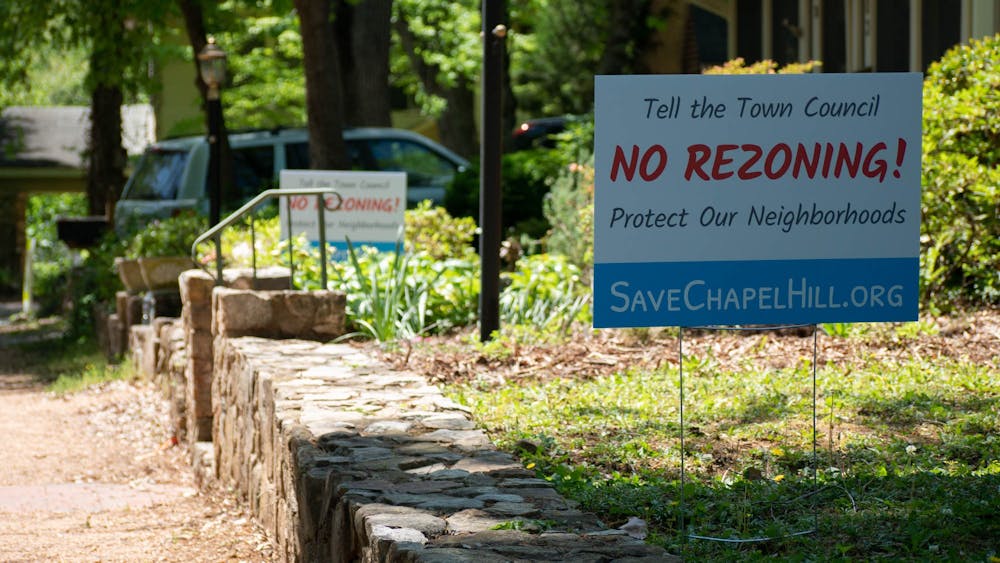With Chapel Hill municipal elections approaching on Nov. 7, housing policy has been a concern for residents when considering which candidates to vote for.
Housing Choices for a Complete Community, a text amendment to the town's land use management ordinance, was passed on June 21 and has become a prominent issue in this year's mayoral race.
The text amendment allows for some types of multi-family housing to be built in lots previously zoned for single-family units. It aims to increase the range of housing available in the community and meet demands for missing middle housing.
Adam Searing, a Chapel Hill mayoral candidate, was one of three town council members to vote against the text amendment.
Searing’s campaign website says he believes the change won't create more affordable homes for lower and middle-income families, but it will contribute to the building of expensive luxury multi-unit and investor-owned duplexes.
He also opposes building housing of any kind on top of preserved forest and open space purchased by voter-approved environmental bonds to maintain town green space, according to Searing’s website.
Jess Anderson, Searing's opponent in the mayoral race, voted in favor of the amendment.
Anderson’s campaign website says the goal of the amendment is to provide flexible housing options that will promote a more sustainable and inclusive Chapel Hill while ensuring that people can afford to stay in their homes.
Since the passage of the text amendment, no newly allowed multi-family developments have been approved.




